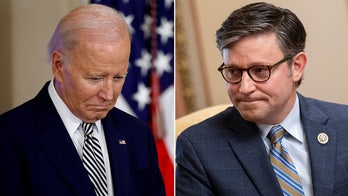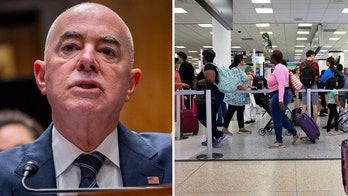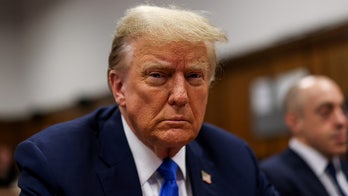Chairman of the Joint Chiefs of Staff Gen. Mark Milley this week has directed his staff to collect information on interactions between the U.S. and Chinese militaries in the last five years, Fox News confirmed, as Biden administration officials double down on their warnings that Beijing poses the greatest long-term threat to U.S. national security.
Milley’s directive comes after the U.S. Navy sailed a destroyer close to China-controlled islands in the South China Sea in an operation intended to uphold "the rights, freedoms and lawful uses of the sea."
"China has been on the rise, economically and militarily, for more than a decade. They've become more bold in the Pacific," Milley said in a written statement to CNN. "Maintaining open lines of communication and managing competition will reduce strategic risk. The US military's focus is on modernization and readiness. Our network of partners and allies is a source of strength."
Milley’s orders came days after he spoke with People’s Liberation Army of China Chief of the Joint Staff Department Gen. Li Zuocheng by video teleconference.
Joint Staff spokesperson Col. Dave Butler said that during the call Milley "discussed the need to responsibly manage competition and maintain open lines of communication."

Gen. Mark Milley attends an interview with The Associated Press at the American Cemetery of Colleville-sur-Mer, overlooking Omaha Beach, on Monday, June 6, 2022. (AP/Jeremias Gonzalez)
"Gen. Milley underscored the importance of the People’s Liberation Army engaging in substantive dialogue on improving crisis communications and reducing strategic risk," Butler continued, noting that the call also included "a productive discussion of a number of regional and global security issues."
Butler said Milley regularly communicates with chiefs of defense around the globe, including China.
The directive also comes as top intelligence community officials are warning of the threat Beijing poses to the U.S.
FBI Director Christopher Wray earlier this month said China poses the "biggest long-term threat" to U.S. economic and national security.
The National Counterintelligence and Security Center (NCSC) also this month warned that state and local leaders are at "risk" of being "manipulated" to support "hidden" agendas by the Chinese Communist Party (CCP) as China seeks to target officials outside of Washington to lobby for Beijing-friendly policies at the federal level.
In April, CIA Director William Burns issued a similar warning to Wray’s – also noting that China has been "a silent partner" in Russian President Vladimir Putin’s aggression in Ukraine.
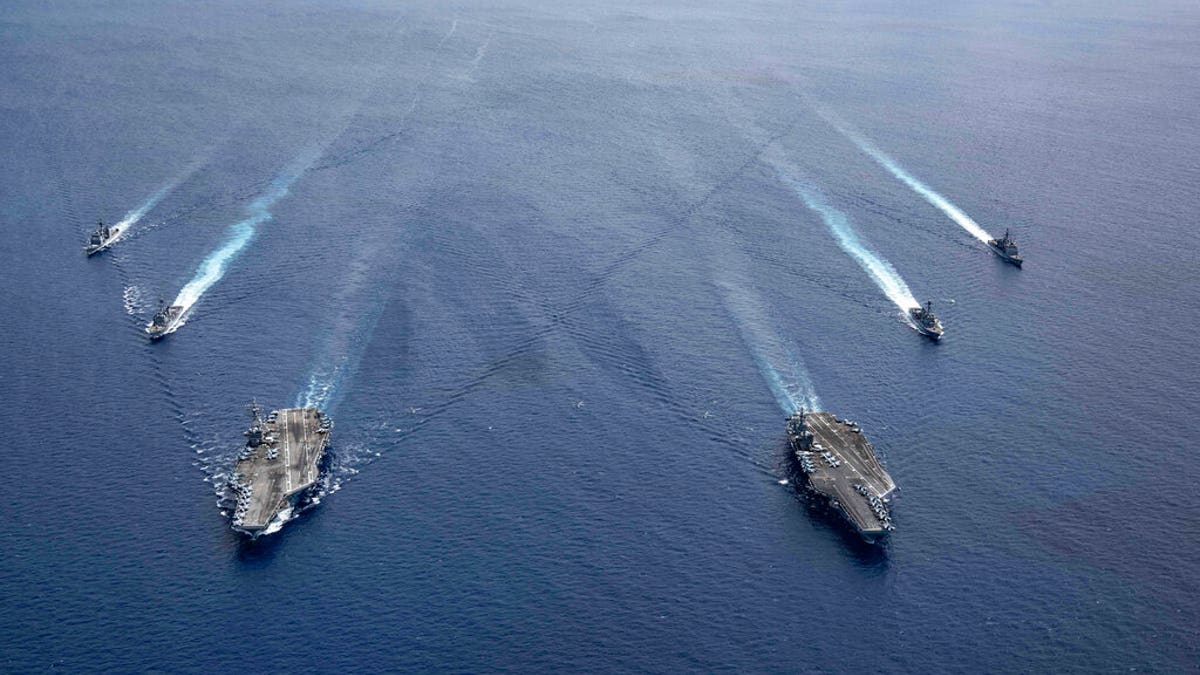
The USS Ronald Reagan and USS Nimitz carrier strike groups steam in formation in the South China Sea, July 6, 2020. (Mass Communication Specialist 3rd Class Jason Tarleton/U.S. Navy via AP)
Burns, at the time, said China is "in many ways, the most profound tests the CIA has ever faced," calling China a "formidable competitor lacking in neither ambition nor capability."
Specifically with regard to the Indo-Pacific, House Republicans have warned of China’s "rapid expansion and militarization" of the region, calling the moves a "significant threat" to the U.S. and around the globe.
CHINA POSES 'BIGGEST LONG-TERM THREAT TO ECONOMIC AND NATIONAL SECURITY,' FBI DIRECTOR WRAY WARNS
A State Department spokesperson told Fox News last month that the Biden administration envisions an Indo-Pacific that is "open, connected, prosperous, resilient and secure – and we are ready to work together with each nation to achieve it."
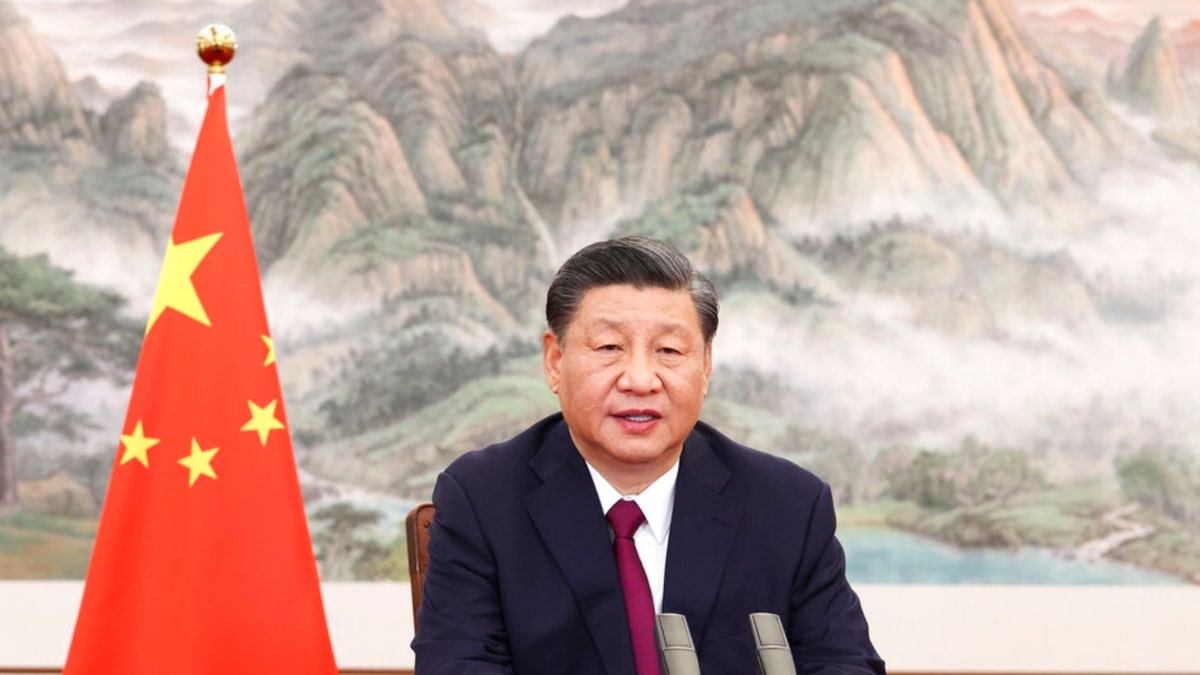
Chinese President Xi Jinping delivers a speech via video link to the opening ceremony of the Bo'ao Forum for Asia in southern China's Hainan Province, April 21, 2022. (Huang Jingwen/Xinhua via AP)
According to the State Department, in the last year, the U.S. has modernized alliances, strengthened partnerships and forged "innovative links among them to meet urgent challenges, from competition with the People's Republic of China to climate change to the pandemic."
"These accomplishments form the basis of the administration’s Indo-Pacific Strategy," the spokesperson said, adding that the strategy "outlines President Biden’s vision to more firmly anchor the United States in the Indo-Pacific and strengthen the region in the process."
"We, along with allies and partners, including those in the region, have made our concerns clear about China’s shadowy, unspecified deals with little regional consultation," the State Department spokesperson said, warning that "as the PRC’s involvement in the region has grown, we have seen a range of increasingly problematic behavior."
The official said that behavior included its assertion of "unlawful maritime claims and the ongoing militarization of disputed features in the South China Sea; predatory economic activities, including illegal, unreported and unregulated (IUU) fishing; investments that undermine good governance and promote corruption; and human rights abuses."
Fox News’ Liz Friden and The Associated Press contributed to this report.



